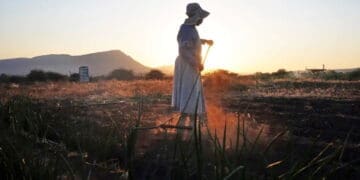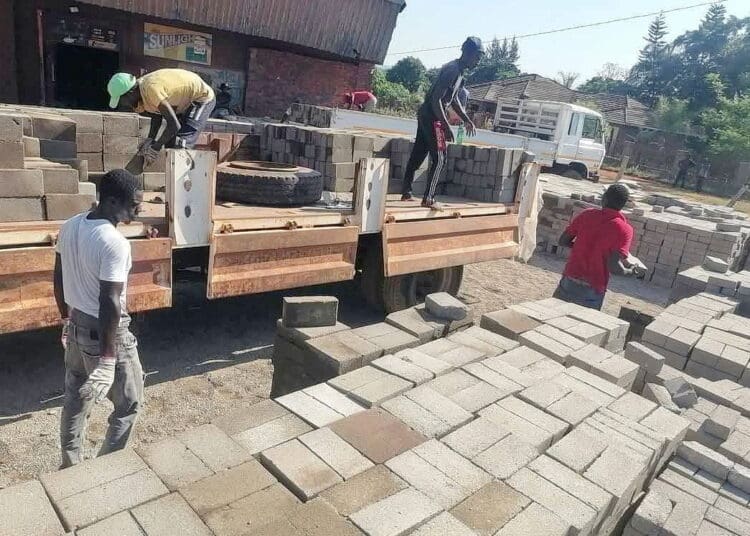In Itsani village, just outside Thohoyandou, the sound of machinery blends with the steady rhythm of workers stacking rows of freshly molded cement bricks.
This is the heart of Tshima Building Supply and Project, co-founded by Monyai Surprise and Ndou Lufuno.
At first glance, it may look like a small village operation, but Tshima is quietly driving brick innovation in Limpopo’s rural housing sector.
Rural construction often faces two hurdles, poor access to affordable building materials and high transport costs from urban suppliers.
Tshima is solving both problems by producing quality cement bricks on-site in Itsani and keeping prices low. From R1.90c for stock bricks and R3.50c for maxi blocks.
“Our innovation is simple but powerful,” says co-founder Monyai Surprise.
“We bring the factory to the village. Instead of waiting weeks and paying high transport costs, families and builders can get strong, durable bricks right here.”
This approach is reshaping how rural households build homes and businesses. By decentralising brick production, Tshima has created a local supply chain that cuts costs, saves time, and stimulates local building activity.
Innovation at Tshima is not just about pricing, but designing for durability in rural conditions.
Cement mixtures are carefully calibrated to withstand weather challenges and long-term use.
“We make sure our blocks are strong enough to last, even in areas where maintenance is difficult,” explained Ndou.
“People here can’t afford to rebuild every few years, so the quality of each block matters.”
Builders across Nzhelele and surrounding villages have taken notice.
One local builder, Desire Mafukwa expressed his experience with Tshima bricks.
“I’ve worked with bricks from town, but Tshima’s quality is consistent. The maxi blocks are perfect for housing walls, and the stock bricks save clients money without sacrificing strength.”
Part of Tshima’s innovation also lies in how it develops people.
The enterprise trains young locals in brick-making, machinery handling, and quality control.
“Before I worked here, I didn’t know anything about construction,”said one employee.
“Now I can produce and test bricks myself, a skill I can use for life.”
Co-founder Ndou added, “We’re not just innovating in products, but also in people. By giving skills to young workers, we’re ensuring the knowledge of brick-making stays in the community.”
The cement industry is notoriously vulnerable to rising input costs, transport bottlenecks, and power outages.Tshima’s resilience lies in constant adaptation.
“Every challenge forces us to think differently,” said Ndou.
“When cement prices rise, we optimise production efficiency. When load-shedding hits, we look for backup solutions. Innovation for us is about survival as much as growth.”
Development experts often stress that rural innovation does not always mean high tech, sometimes it is about rethinking basic industries.
Tshima’s model shows how manufacturing SMMEs can anchor rural economies, proving that solutions built “on the ground” are often the most sustainable.
As Ndou puts it, “Our bricks are not just materials, they are a foundation for rural progress. Innovation here means making sure no one is left behind when it comes to building a home.”
Azwi@vutivibusiness.co.za































































